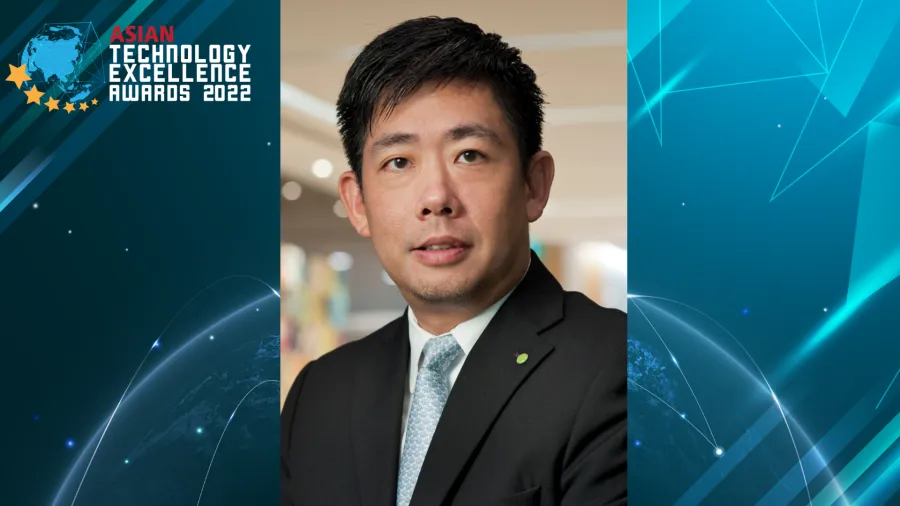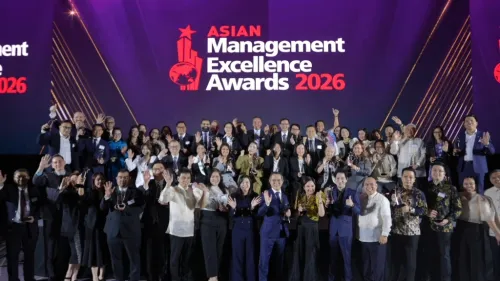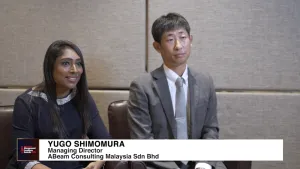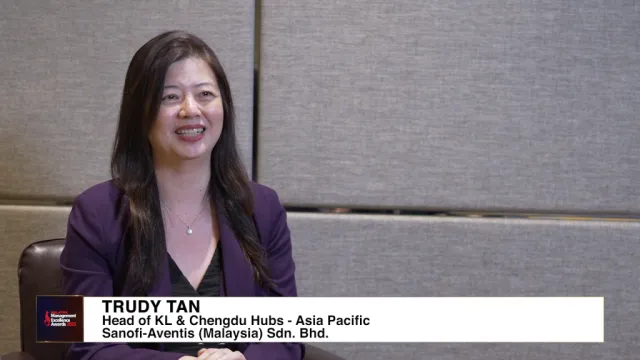
Tech companies should prepare for the next wave of unknowns, says Deloitte industry leader
Amidst supply chain disruptions, Yang Chi Chih recommends companies review channel performance and relationships with partners.
Deloitte Southeast Asia’s Technology, Media & Telecommunications Industry Leader Yang Chi Chih has more than two decades of public accounting experience in serving local, multinational, and listed companies in Singapore and the United States.
He has advised companies on their initial public offerings on the Singapore Exchange and has led teams in system audits to identify areas for improvements in accounting and reporting systems. Chi Chih has been involved in audit and assurance work with the telecommunications and technology companies in Singapore, Southeast Asia and South Asia over the last 15 years.
Chi Chih is also adept in International Financial Reporting Standards reporting engagements and has conducted seminars on changes and updates on financial reporting standards.
As one of the esteemed judges in this year’s Asian Technology Excellence Awards, he has provided insights for aspiring auditors and startup entrepreneurs on career milestones and securing funding for the business. He has also discussed the current state of the Technology, Media & Telecommunications industry and how it evolved over the years.
What are your career milestones from your experience as an audit professional and what advice would you give to aspiring auditors?
Other than being admitted to the Partnership, my secondment to the Deloitte US firm as a manager was one of the major milestones in my career. The experience allowed me to not only widen my network and build connections with other professionals in the industry but also deepened my perspectives on the profession.
I would advise aspiring auditors to proactively seek opportunities and make full use of them when they come along. You should also take ownership of your career, and always strive for continuous learning to remain relevant in this competitive global market. Never be afraid to step out of your comfort zone and embrace challenges, these are [the] best opportunities to help you grow and develop. Lastly, I would recommend aspiring auditors to network and build a relationship with professionals across all industries to have a better understanding of the commercial side of the business.
What advice would you give startup entrepreneurs who are in the process of securing funding?
They should be clear on their business plan, and the objectives of securing funding i.e. how will the funds help to propel growth? Why should investors support your venture instead of your competitors?
In some cases, taking external funds would typically mean having to meet aggressive revenue goals and financial milestones. Startup entrepreneurs must be prepared to be accountable for meeting the investors' goals.
Given the increased demand for internet connectivity brought by the pandemic, what are the latest advancements in the telecommunications industry?
The pandemic has brought an increase in demand for faster broadband connectivity and new services. Consumers are now more technology-centric, especially with the prevalence of digital customers. This has resulted in the need for telecommunication operators to double down on both business and digital transformation.
According to Deloitte’s 2021 advanced wireless survey, three-quarters of key decision-makers believe that advanced wireless communications could create a significant competitive advantage for their organisation. Both Wi-Fi 6 and 5G technology are already seen as the most critical wireless technologies, and their importance will continue to grow especially in the enterprise market.
How has the Technology, Media & Telecommunications Industry changed in Southeast Asia and South Asia in the last 5 years?
The rise in network traffic during the pandemic has not translated to higher revenues for telecommunications operators in the region. Factors such as travel restrictions hampered roaming revenues; and telecommunications operators are also facing declining profits due to Over-the-top (OTT) players, who typically do not have to invest huge capital expenditure in network infrastructure and who also do not consume extensive bandwidth on the network.
In terms of the media, people sought more entertainment at home as they tend to avoid larger in-person events due to lockdowns and social distancing rules. The competition amongst streaming video-on-demand (SVOD) providers for the time, attention, and bank accounts of viewers will continue, fueled by customers with multiple subscriptions, greater cost sensitivity and savviness, and generational differences in entertainment preferences.
As remote or hybrid work became commonplace, chipmakers should look towards building more plants in more places to keep up with the demand, and we expect to see more semiconductor factories in Southeast Asia as companies are seeking to diversify and build resilience in their supply chain. With supply chain disruptions extending far beyond the semiconductor sector, technology companies will also need to start preparing for the next wave of unknowns by working with their partners to review channel performance and relationships, change and adapt channel programs, and figure out new ways to go to market together.
Several telecommunications operators in Southeast Asia have started to invest in digital and enterprise services to diversify beyond connectivity services, but the pace of development has not caught up with the likes of leading telecommunications operators in [the] United States and Europe. Lured by the potential benefits of new advanced use cases, enterprise interest in 5G edge computing applications and private cellular networks is beginning to emerge. Whilst the supplier ecosystem and business model for delivering enterprise-oriented 5G edge computing and private network solutions remain undefined and fluid, they may begin to solidify within the year. With many other players such as networking equipment companies, hyperscalers, and system integrators vying for market share, operators will need to act quickly to define how they should best participate in this emerging market.
What emerging technologies can we expect to see and hear about more in the next few years?
At Deloitte, we expect to see more enterprise use cases being developed and applied to the following up-and-coming areas such as the Metaverse. Artificial Intelligence and Machine Learning will continue to be key trends. It is also anticipated that Digital Reality (such as Augmented Reality and Digital Twin) will become more mainstream in enterprise applications.



















 Advertise
Advertise








